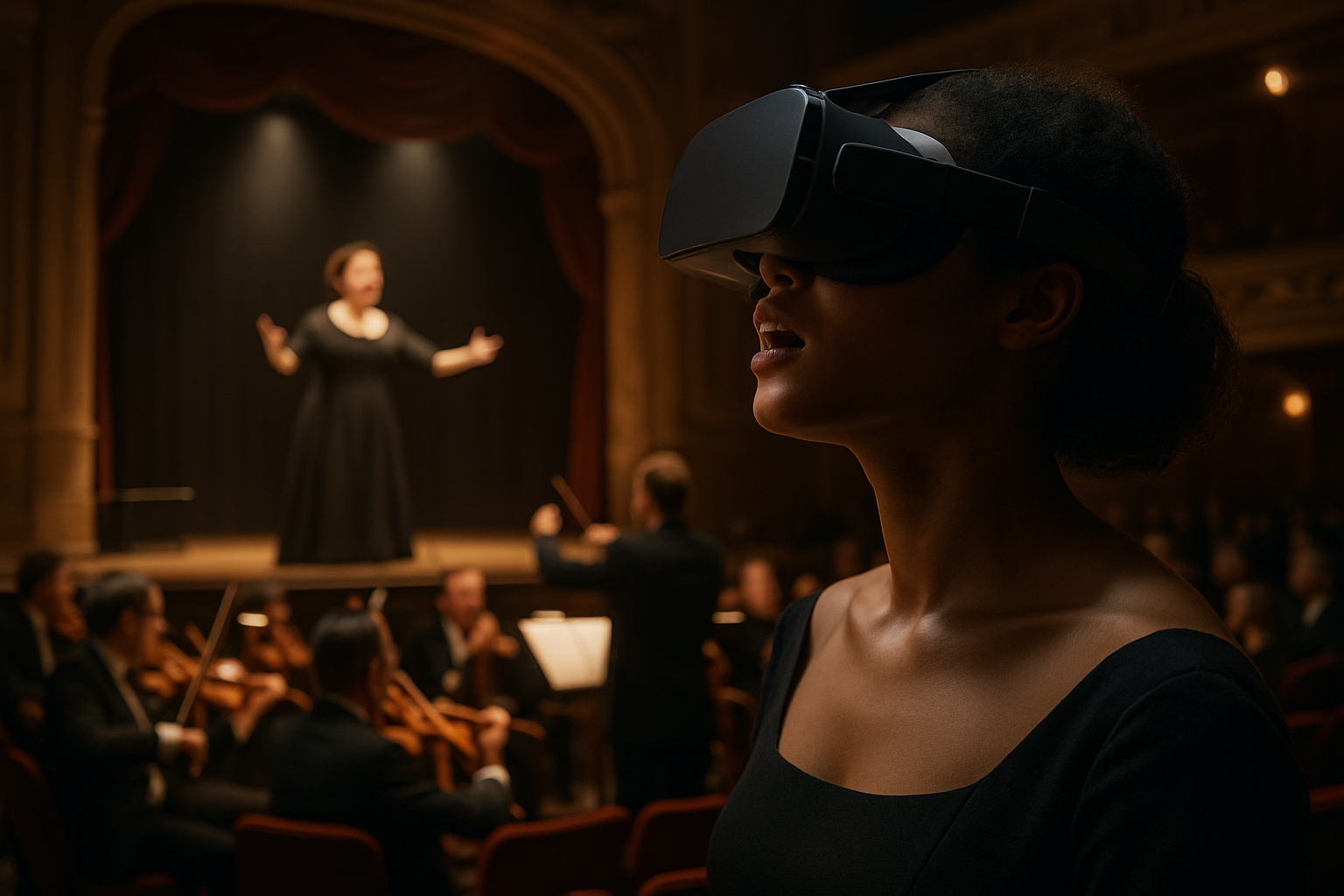Virtual Reality Opera: Reimagining a Classic Art Form
In the ever-evolving landscape of artistic expression, a groundbreaking fusion of traditional opera and cutting-edge technology is captivating audiences worldwide. Virtual Reality (VR) opera, a nascent genre pushing the boundaries of musical storytelling, offers an immersive experience that transports viewers into the heart of performances. This innovative approach is reshaping how we engage with one of the oldest forms of musical theater, opening up new realms of creative possibility and audience interaction.

Technological Advancements Driving the Genre
At the core of VR opera’s success lies the rapid advancement of virtual reality technology. High-resolution displays, sophisticated motion tracking, and spatial audio systems have reached a level of fidelity that can convincingly replicate the grandeur of an opera house. These technological leaps have enabled creators to craft immersive environments that complement the musical and narrative elements of opera, creating a seamless blend of the physical and virtual worlds.
Redefining Audience Participation
One of the most significant impacts of VR opera is the redefinition of audience participation. Traditional opera often maintains a clear divide between performers and spectators. In contrast, VR opera invites viewers to become active participants in the narrative. Audience members can move through virtual sets, interact with characters, and even influence the course of the story in some productions. This level of engagement fosters a deeper emotional connection to the performance and challenges the conventional notions of passive viewership.
Challenges and Opportunities for Creators
The advent of VR opera presents both challenges and opportunities for creators in the field. Composers and librettists must now consider the spatial and interactive elements of their works, crafting narratives that take full advantage of the 360-degree virtual environment. Set designers and visual artists face the task of creating immersive digital worlds that complement the music without overwhelming the senses. While these challenges are significant, they also open up new avenues for artistic expression and experimentation.
The Future of Opera in a Digital Age
As VR opera continues to evolve, it raises questions about the future of the art form in an increasingly digital age. Some traditionalists express concern that the technology may overshadow the music and vocal performances that are central to opera. However, proponents argue that VR can attract new, younger audiences to opera, ensuring its relevance in the 21st century. The potential for global accessibility through VR platforms also promises to democratize opera, making it available to audiences far beyond the reach of traditional opera houses.





